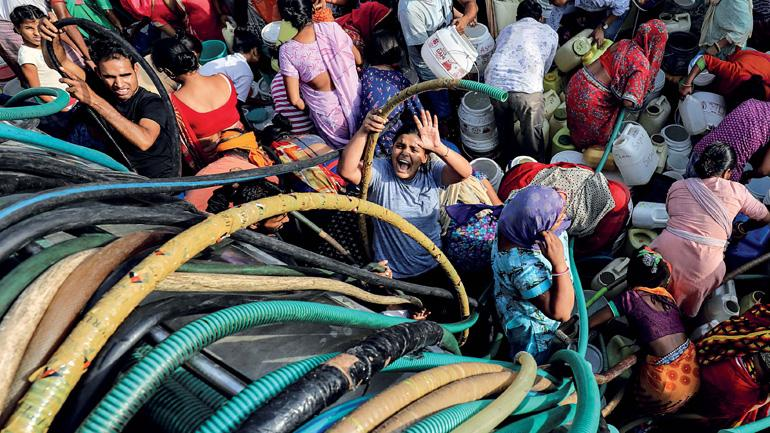
Urbanization is reshaping the landscape of Indian cities, driving economic growth and infrastructure development. However, one of the critical challenges emerging from this rapid urban expansion is the increasing demand for water and the evolving storage needs. As more people migrate to urban centers, the existing water storage infrastructure struggles to meet rising consumption demands, often leading to shortages, inefficient distribution, and environmental concerns.
Growing Water Demand in Urban India
The influx of people into urban areas has led to a sharp rise in water consumption. With expanding residential complexes, industries, and commercial hubs, the need for reliable water storage facilities has never been greater. Traditional water sources such as lakes, ponds, and groundwater reserves are diminishing due to overuse and pollution, making efficient storage solutions crucial for sustainability.
Impact on Groundwater and Reservoirs
Indian cities have traditionally relied on groundwater for a significant portion of their water supply. However, urbanization has led to excessive extraction, causing depletion and contamination of groundwater reserves. Additionally, the concrete expansion of cities has reduced the natural recharge of groundwater, exacerbating the crisis. Reservoirs, which serve as primary water storage units, face challenges due to erratic rainfall patterns and encroachment, further straining urban water systems.
Reduction in Natural Water Bodies
Urban development often comes at the cost of natural water bodies. Many lakes and ponds have been filled up for construction projects, reducing the natural water storage capacity of cities. This loss disrupts local ecosystems and limits the ability to store rainwater effectively. Chennai and Bengaluru, for instance, have witnessed a significant decline in their lake systems, leading to frequent water shortages.
Technological Advancements in Water Storage
To address storage challenges, cities are investing in modern solutions such as rainwater harvesting, underground reservoirs, and desalination plants. Governments and urban planners are promoting rooftop rainwater harvesting systems, which can supplement municipal supply and reduce dependence on groundwater. Additionally, advanced water management strategies, including smart metering and efficient pipeline infrastructure, are being deployed to optimize storage and minimize wastage.
Policy and Sustainable Urban Planning
Effective policies and sustainable urban planning are essential to tackle water storage challenges. The government has introduced initiatives such as the Jal Jeevan Mission to improve water availability and infrastructure. Encouraging sustainable construction practices that incorporate water-efficient designs and storage systems can help mitigate urban water crises in the long run.
Conclusion
Urbanization in Indian cities is undeniably transforming water storage needs. While the growing population and expanding infrastructure pose challenges, innovative solutions and policy interventions can pave the way for a sustainable water future. Strengthening water conservation efforts, protecting natural reservoirs, and adopting advanced storage technologies will be crucial to ensuring that Indian cities remain water-secure amid rapid urban expansion.


